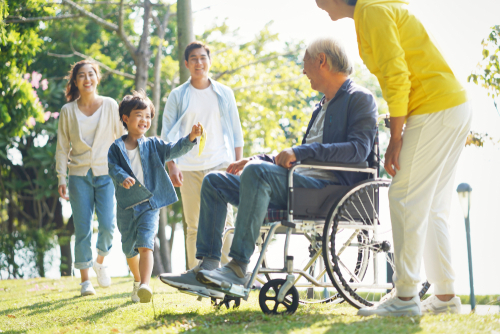Claims Could Follow the Resumption of Nursing Home Visitation
A recent guidance provided by federal regulators will allow family members to resume indoor nursing home visitation with their loved ones “at all times,” according to AP News. The resumption of visitation after a prolonged ban during the coronavirus pandemic means the return of much longed-for face time and hugs between nursing home residents and their loved ones. It may also mark the start of a new wave of abuse and neglect claims against nursing homes.
In consideration of the 1.4 million residents and 1 million nursing home staff who are fully vaccinated as well as the significant drop of COVID-19 cases and deaths in long-term care facilities, the Centers for Medicare and Medicaid Services recommended the resumption of indoor visits with almost no exceptions. The cessation of all visitation was ordered after the coronavirus began ravaging American nursing homes last spring, eventually resulting in more than 163,000 deaths and accounting for more than a third of the U.S. COVID-19 deaths overall. This forced isolation brought on severe depression for many residents and led to more issues for others, particularly for dementia patients.
In light of the mental and emotional suffering isolated nursing home patients have endured, the ability for them to receive visitors has been applauded by residents and their families alike. But as family members enter nursing homes for the first time in about a year and get their first look at the kind of care their loved ones have received during their absence, requests for investigations and/or initiation of legal action might follow.
The impact of the coronavirus pandemic on U.S. nursing homes might have been less devastating had a number of systemic problems been corrected prior to its onslaught. But the same understaffing, low pay for workers, and poor regulation that existed before COVID contributed to the failure of nursing homes during the pandemic. Returning family members could discover that these shortcomings have resulted in instances of neglect and abuse for their loved ones.
Among the most prevalent illustrations of nursing home neglect and abuse in nursing homes is the appearance of bedsores (also called pressure ulcers and decubitus ulcers). These ulcers that appear on the skin of residents left immobile for too long often occur in homes where understaffing leaves workers stretched too thin to give proper care to every patient. If left unattended, pressure ulcers can increase in severity, leading to infection or death. The discovery that residents have sustained injuries from falls or are suffering from malnutrition or dehydration are other compelling indications that nursing home neglect has transpired.
Visiting family members are residents’ primary advocates, and will likely be the first to discover the signs that neglect or abuse have occurred. The return of these advocates to facilities where certain failures have been augmented by a devastating pandemic could very well mean a wave of neglect and abuse claims is forthcoming.
Helping You Advocate for Your Loved One
It is required that Pennsylvania and New Jersey nursing homes meet every health and safety standard and thereby secure the physical, mental, and psycho/social well-being of residents. Holding the Philadelphia/PA or NJ nursing home where your loved one lives to this requirement is paramount. Should you have concerns about a Pennsylvania or New Jersey nursing home following COVID-19 isolation, or if you suspect neglect, abuse, or fraud has occurred at the Pennsylvania, Philadelphia, or New Jersey nursing home where your loved one lives, please contact nursing home abuse attorney Brian P. Murphy to discover your legal rights and options.







